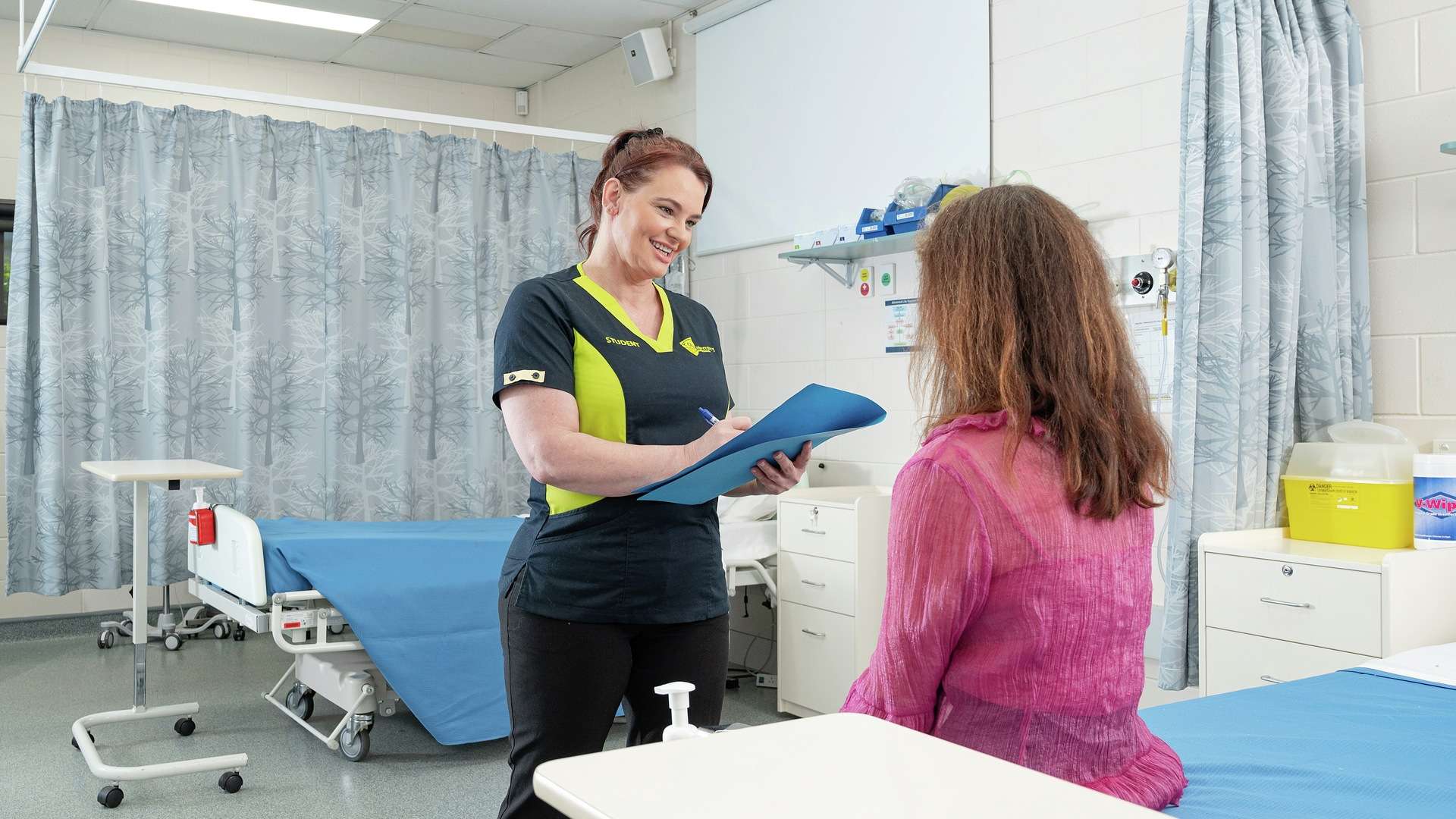
Whether you have always dreamed of being a nurse, or your lived experiences have ignited your passion to make a difference through healthcare, our accredited Bachelor of Nursing will prepare you for a rewarding and diverse career as a competent and effective Registered Nurse (Division 1) General.
This course prepares you to be reflective about your practice as a nurse and develop clinical reasoning skills in order to confidently and safely engage in contemporary nursing practice in a variety of environments and contexts and adapt to the needs of people from diverse backgrounds.
You'll acquire skills to provide person-centred care and collaborate with other members of the interdisciplinary healthcare team. Plus, seek evidence to ensure safe quality practice and act in a professional, ethical and compassionate manner. In addition, you will learn to nurture the development of nursing as a practice discipline and demonstrate leadership in healthcare. You will explore how life-long learning skills can facilitate continuing professional development.
Our highly trained and experienced nursing lecturers will support you while you develop your professional nursing profile. You will develop your skills and knowledge through a combination of theoretical and extensive clinical learning experiences including simulated training across our nationally located Clinical Learning Centres which simulates a real-world setting for you to safely practice in, and completion of 800 hours of professional practice placements commencing in your first year of study. Benefit from our enhanced learning experience and launch your nursing career.
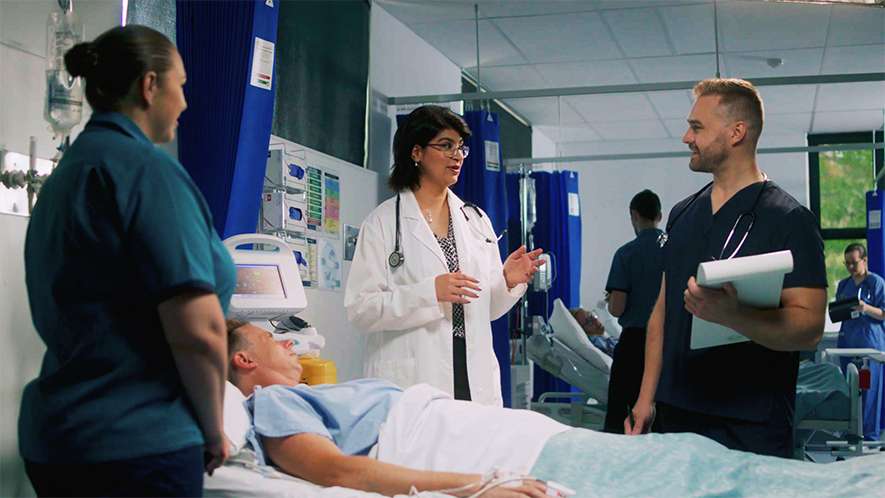
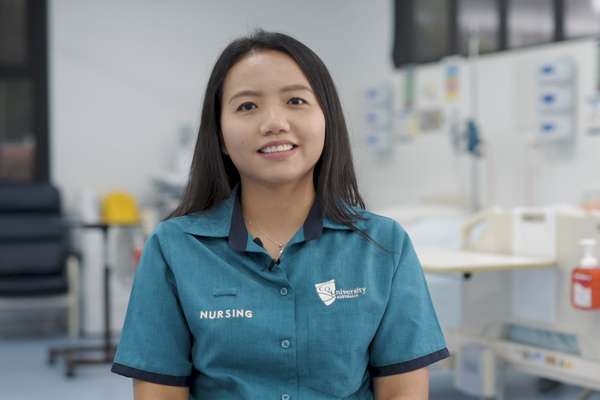
One of the best things about my course is the opportunity to do placements. The nursing staff are accommodating and the patients are willing to be involved. I want to continue on this journey and be part of the nursing workforce in this country.
Ivy Vana
Bachelor of Nursing | Philippines
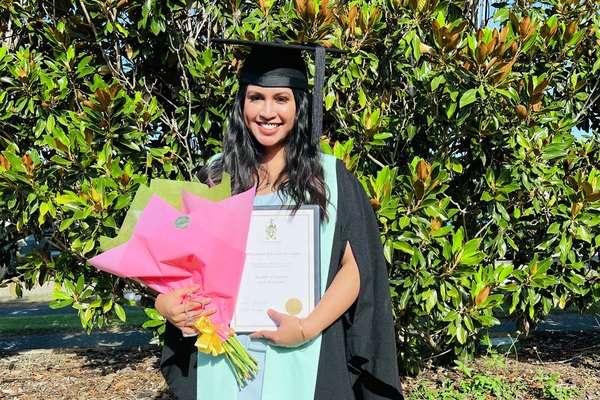
During my course, I enjoyed the clinical placements. The placement made me realise how important primary health and community nurses are, especially in remote areas where access to primary healthcare is limited and healthcare resources are scarce.
Marie Loraine Generalao Bacungan
Philippines | Bachelor of Nursing
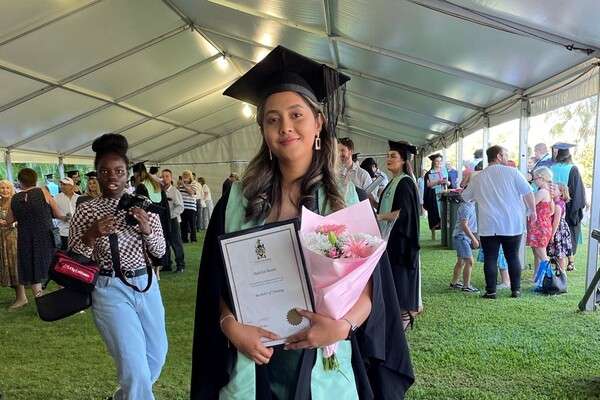
Our clinical placements were life-changing and we were able to practice in real-life scenarios. We used our theoretical knowledge in practice and all the people were very supportive, which helped me to gain confidence to work as a Registered Nurse at the hospital.
Rakshya Basnet
Bachelor of Nursing | Nepal

Nursing offers numerous opportunities to explore and gain experience. CQU prepares you for placements where the theoretical knowledge starts making sense when working in a real-world setting. I am now working as a graduate registered nurse in the surgical ward.
Rajani Shrestha
Bachelor of Nursing | Nepal

The Destination Australia Scholarship meant a lot to me and I am very grateful to CQU. I'm very satisfied with the educators, they are very supportive and diligent. There are different teams to support students and I feel extremely lucky to choose this university.
Sofiya Chauguthi
Bachelor of Nursing, Destination Australia Scholarship | Nepal
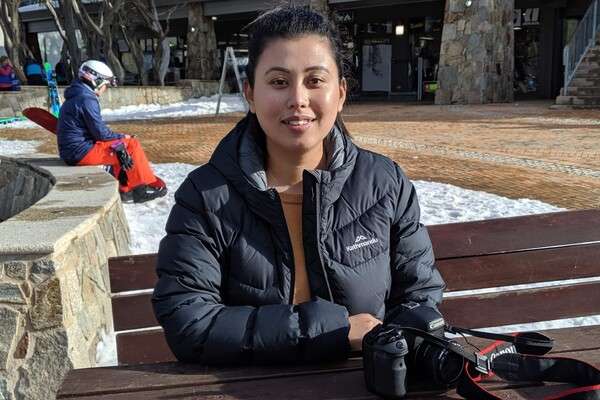
I knew CQU was the place where I wanted to achieve my goals. I was immensely happy and thankful when I received a scholarship. This means a lot to me because this is a form of motivation to study hard.
Anita Thapa
Bachelor of Nursing | Nepal
The Bachelor of Nursing aims to provide you with the theoretical knowledge and practical skills to enable you to be a competent and effective Registered Nurse (Division 1) General.
In the final year of the course, as a student, you may like to apply for a new graduate nursing position in a hospital and health service or other healthcare organisation. This will provide you with the opportunity to consolidate your knowledge and skills in nursing further. The broad nature of nursing and healthcare allows opportunities for employment and/or specialisation in environments such as acute hospital services, community health, mental health, residential and aged care, Indigenous health, and rural and remote health.
The course structure and available locations can change depending on when you want to study. You can choose the intake that best suits you in the drop-down menu below.
You must complete 23 units (144 credits):
The units you'll study are listed below. Click on a unit to learn more.
The units are listed in the order that you should complete them. Completing these units in a different order may delay your progress and extend the length of your study.
Check the course planner below for details about the units you should study each term. It is particularly important to look at professional experience placement units and the terms they are offered, noting that they are offered only once yearly.
Please note:
Professional Experience Placement
Professional Experience Placement
Professional Experience Placement
Professional Experience Placement
Professional Experience Placement
Depending on clinical placement availability, you may need to travel within or outside of your state for your clinical placement.
This course is accredited by the Australian Nursing and Midwifery Accreditation Council (ANMAC). Upon successful completion, you will be eligible to apply for registration as a Registered Nurse (Division 1) General) in Australia.
If you have already completed a study relevant to the course you have enrolled in, you may be eligible for credit transfer.
For your application to be considered, you must meet the following entry requirements.
While not needed to apply, you'll need to meet the following requirements throughout your studies.
This is an approximate cost of enrolling in this course, shown in Australian dollars (A$), for one academic year and is based on a full-time study load (8 units over 2 terms).
Your actual fees may vary, depending on the units that you select to study and your study load. Fees are reviewed each year and are subject to change.
We offer a range of scholarships to support international students. Our merit scholarships are awarded to high-achieving students based on academic excellence and provide course fee reductions ranging from 15% to 25%.
We also have region-specific scholarships for students from selected regions, offering a 25% reduction in course fees.
You don’t need to submit a separate application for scholarships funded by the University. We automatically assess all eligible students for the best available scholarship when you apply for your course.
In addition to your course fees, you must have sufficient funds to cover other study and living expenses. These may include visa application fees, Overseas Student Health Cover (OSHC), textbooks and learning materials, checks and certifications, living expenses and more.
Our easy to use online application system for international students will guide you through the process of applying for a course at CQUniversity Australia.
CQUniversity Australia is a trading name of Central Queensland University
ABN: 39 181 103 288
RTO Code: 40939
CRICOS: 00219C
TEQSA: PRV12073